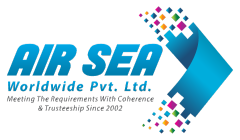THE IMPORTANCE OF TRAINING IN DANGEROUS GOODS AIR CARRIAGE
Over 1.25 million loads of what are termed dangerous goods, such as flammable solids and radioactive materials, are shipped by air each year. It is crucial that everyone involved in the transportation of these goods is well versed in the rules and regulations governing their carriage, to ensure safety and compliance, and to avoid potential issues.
International law requires individuals involved in each stage of the process – shipping, packing, documentation, carriage and handling – be trained to the required level listed in the ICAO (International Civil Aviation Organisation) Technical Instructions for the Safe Transport of Dangerous Goods by Air. In the UK, training must be approved by the Civil Aviation Authority (CAA), which enforces the regulations under the Air Navigation Order. The penalties for non-compliance can be severe – an unlimited fine, sentenced to two years in prison, or both if a company’s cargo causes a safety incident or fails an inspection. FTA is proud to offer training courses, run by CAA approved experts, that lead to CAA recognised certification.
It is vital that any training in this area is tailored to each industry sector. Freight forwarders, shippers, carriers, and operations and ground handling agents all require thorough, in-depth knowledge and specialist training, while other individuals involved in the transportation process require training commensurate with their responsibilities.
FTA’s courses cover all aspects of the safe transportation of dangerous goods, including classification of dangerous goods, excepted and limited quantities, British law, documentation, and specification package markings. To remain safe and compliant, it is essential to invest the required time and resources to gain a full understanding of this specialist and ever-changing area.
In particular, the transportation of Lithium Batteries requires very particular, specialist knowledge. As restrictions on their use continue to proliferate – in line with increasing usage across a variety of industries and products – it is imperative that those handling these power sources have a thorough understanding of them, and the potential risks involved.
There are two types of battery to consider: Lithium ion (rechargeable) and Lithium metal (non-rechargeable). Lithium Ion batteries are in phones, laptops and power tools. Lithium metal batteries are the type used in watches, key fobs and sensors. The rules for carriage vary by shipping method – for example, batteries transported on their own must travel on a cargo only aircraft. Additionally, Lithium ion batteries can only be shipped with a state of charge (SOC) not exceeding 30%. However, airlines may also file variations which further restricts their carriage. There may also be restrictions on the number of packages offered within a consignment. Shippers who presume that there is a single rule for carriage do so at their peril.
The complexity of the rules around battery carriage, combined with a lack of understanding of the potential risks involved, is leading to increasing numbers of incidents and accidents in aviation caused by the transportation of untested and undeclared batteries. Without proper training – that is readily available and cost effective – there is the risk that shippers could drive this issue underground, which could cause more incidents in a less-regulated environment.
That is why FTA is committed to providing specialist battery transport training within its dangerous goods training provision. Earlier this year, the association acquired Training Team, a company specialising in the carriage of dangerous goods by air and sea. For more information on the courses available,
Transporting dangerous goods without proper training comes with many risks – but solutions are available. Improper carriage should be a thing of the past, and with increased knowledge and expertise, FTA is confident that the industry’s compliance and safety levels will continue to rise.
Keith Gray, General Manager – Training, Audits and Standards, FTA
